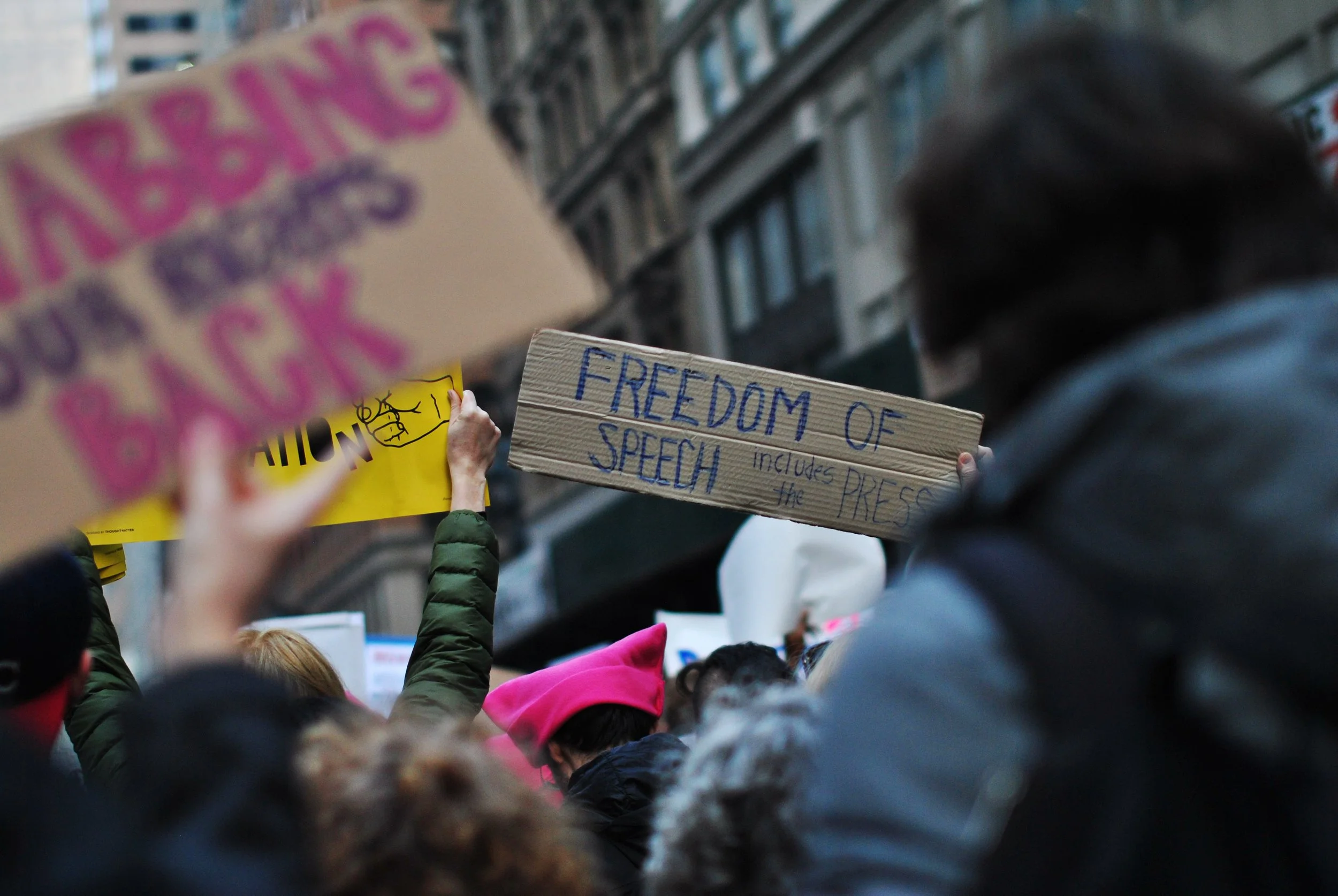Free speech and complications
To what extent is our speech protected?
Many concerns have been raised regarding free speech protections within the current administration. These have become more prevalent due to the recent “indefinite” suspension of the Kimmel show, which seemed particularly disturbing, as it took place shortly after Kimmel’s commentary on the Charlie Kirk assassination and President Trump’s response to it. What exactly did Kimmel say?
Regarding the assassination of Charlie Kirk, Kimmel remarked, “We hit some new lows over the weekend with the MAGA gang desperately trying to characterize this kid who murdered Charlie Kirk as anything other than one of them…doing everything they can to score political points from it.” On President Trump’s response to the assassination, Kimmel commented, “This is not how an adult grieves the murder of someone called a friend; this is how a four-year-old mourns a goldfish,” and further speculated that Trump was acting intentionally “so he can be mad about that instead of the (Jeffrey) Epstein list.”
Following these remarks, Federal Communications Commission (FCC) Chairman Brendan Carr stated, “We can do this the easy way or the hard way. These companies can find ways to change conduct and take action, frankly, on Kimmel or there’s going to be additional work for the FCC ahead.” Nexstar, a company that owns multiple ABC affiliates, announced hours later that it would no longer carry Kimmel’s show. ABC announced it would be suspending Kimmel indefinitely. After facing significant public backlash, it has since been announced that the show would return to ABC on September 23, “even as major station owners said they would still keep the show off their airwaves for viewers in thousands of homes.”
This incident occurred in the midst of heightened attacks on political speech under the current administration. President Trump, in addition to his statements regarding Jimmy Kimmel, has, according to the American Civil Liberties Union (ACLU), “sued the New York Times, the book publisher Penguin Random House, and four New York Times reporters for news reporting and analysis that the president disliked.”
Understandably, these actions have incited a great deal of fear and apprehension. I, personally, found myself unsurprised. These actions are in line with what I have come to expect from this administration, and are indeed not out of place in our country’s history, considering the jarring example of McCarthyism during the second Red Scare, or even the Sedition Act of 1798, which made it illegal for American citizens to “print, utter, or publish…any false, scandalous, and malicious writing” about the government. The First Amendment to our Constitution, often held up as our defense against oppression and a shining beacon of liberty, is intentionally vague, diversely interpreted, and oft-ignored by political leaders.
Let us, though, take a closer look at this specific incident—the suspension of the Kimmel show—and its relationship to the First Amendment. As transcribed by the Congress website, the First Amendment states, “Congress shall make no law respecting an establishment of religion, or prohibiting the free exercise thereof; or abridging the freedom of speech, or of the press; or the right of the people peaceably to assemble, and to petition the Government for a redress of grievances.”
It is important to note that the First Amendment is only meant to protect against actions by the state—which, while this seems potentially clear-cut, is often complicated. Additionally, Supreme Court decisions have supported a complex precedent regarding broadcast radio and television.
The Supreme Court, according to the Congress website, has established that “a private entity can qualify as a state actor in a few limited circumstances,” such as “[1] when the private entity performs a traditional, exclusive public function; [2] when the government compels the private entity to take a particular action; or [3] when the government acts jointly with the private entity.” It appears that, following this doctrine, the FCC, through the statements of Chairman Brendan Carr, possibly violated the First Amendment by issuing underhanded threats to broadcasters, “compel[ing] the private entity to take a particular action.” One might think that there would be more strict protections to protect against actions by private actors that have been influenced or coerced by government officials.
Nonetheless, this issue is further complicated by the aforementioned special treatment of broadcasters in Supreme Court decisions. In National Broadcasting Co. v. United States, the Supreme Court recognized that “broadcast is unique among media because electromagnetic spectrum is a scarce and finite resource, and this scarcity justifies government involvement.” In 1949, they further justified certain aspects of the FCC’s “fairness doctrine” in Red Lion Broadcasting Co. v. FCC, which allowed the government to “regulate the content being broadcast on licensed stations,” and conveyed that the government may “require a licensee to act in the public interest in selecting the content to be broadcast.” This rule—that “required stations to present differing viewpoints on controversial issues”—was eliminated in 1987 under Reagan’s presidency; the BBC notes that “broadcasters are still required to give equal airtime to opposing political candidates during elections, but the FCC does not mandate balanced coverage on other issues.” Nonetheless, there is precedent for government involvement in broadcasting, and the First Amendment does not appear to consistently hold up against that involvement.
We can look to the Supreme Court to determine the constitutionality of our laws; still, it is important to remember that they might not always rule the way we may think they should, and they have virtually no way to enforce their rulings if those in power ignore them.
The First Amendment and its true protections have been hotly debated since its beginning. To what extent the current administration will face challenges to their actions is unclear. Try to remember, though, that this is not the first time such issues have arisen in our nation, and while things may seem to be worsening, they always have the potential to get better.

